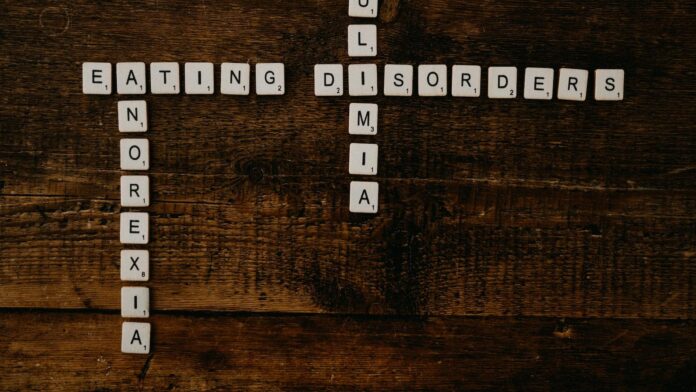
Anorexia nervosa is a serious eating disorder characterized by a relentless pursuit of thinness and a distorted body image. While it is often associated with extreme weight loss, it is important to note that individuals with anorexia nervosa may not always appear emaciated. Instead, they may be of normal or even slightly above-average weight, making it difficult to identify the condition based on appearance alone. Recognizing the symptoms of anorexia nervosa is crucial for early intervention and treatment.
In this article, we will explore the various symptoms of anorexia nervosa, ranging from physical to emotional indicators. It is important to understand that anorexia nervosa is a complex mental health condition with a range of symptoms that can impact individuals physically, psychologically, and socially. By familiarizing yourself with the signs of anorexia nervosa, you can help identify the condition in yourself or others and seek appropriate support and treatment.
Physical Symptoms
Physical symptoms of anorexia nervosa can be readily observable and may include extreme weight loss, fatigue, dizziness, and fainting. Due to severe malnutrition, individuals with anorexia may exhibit a thin and frail appearance, with a visible protrusion of their bones. Furthermore, they may develop lanugo – a fine downy hair that grows on the body as a result of the body’s attempt to insulate itself due to the lack of body fat. Other physical symptoms may include brittle nails, dry skin, and a yellowish tint to the skin.
In addition to these visual indicators, anorexia nervosa can lead to a range of physical complications, such as anemia, low blood pressure, and electrolyte imbalances. These can have serious implications for the individual’s overall health and wellbeing, and may require medical intervention to address.
Behavioral Symptoms
Behavioral symptoms of anorexia nervosa may encompass a preoccupation with food, calories, and weight. This can manifest as strict dietary rules, such as avoiding specific food groups or drastically reducing portion sizes. Individuals with anorexia may also engage in ritualistic behaviors around mealtimes, such as cutting food into tiny pieces or rearranging it on their plate.
Furthermore, those with anorexia nervosa may exhibit excessive exercise as a means of compensating for calorie intake or controlling their weight. This can involve spending significant amounts of time engaging in physical activity, even in the presence of fatigue or injury. Additionally, individuals with anorexia may display secretive behavior around food and eating, making excuses to avoid mealtimes or lying about their food consumption.
Emotional Symptoms
Emotional symptoms of anorexia nervosa can significantly impact an individual’s mental wellbeing. This may include a distorted body image, wherein the individual perceives themselves as overweight despite evidence to the contrary. This can lead to intense fear of weight gain and a persistent desire to be thinner, driving further restriction of food intake.
Additionally, individuals with anorexia nervosa may experience mood disturbances, such as depression, anxiety, and irritability. These emotional symptoms may also be accompanied by social withdrawal and a reluctance to engage in social activities that involve food. As a result, relationships and social functioning may be significantly impacted by the emotional symptoms associated with anorexia nervosa.
Cognitive Symptoms
Anorexia nervosa can also influence an individual’s cognitive functioning, leading to disordered thinking patterns and cognitive distortions. This may include obsessive thoughts about weight, body shape, and food, as well as a preoccupation with body checking and self-criticism. Individuals with anorexia may exhibit cognitive inflexibility, rigid thinking, and a preoccupation with details and rules related to food and eating.
Cognitive symptoms of anorexia nervosa can contribute to the maintenance of the disordered eating behaviors and may require specialized therapeutic intervention to address and reframe these thinking patterns.
Social Symptoms
Social symptoms of anorexia nervosa can impact an individual’s relationships and overall social functioning. This may include withdrawal from social activities that involve food, as well as avoidance of social interactions that may draw attention to their eating habits or body shape. Individuals with anorexia nervosa may also experience challenges in their academic or work environments, as the condition may impact their ability to concentrate and engage in tasks effectively.
Furthermore, anorexia nervosa can lead to strained relationships with family and friends, as well as difficulties in seeking support and understanding from others. It is important to recognize the social symptoms of anorexia as they can have a significant impact on an individual’s overall wellbeing and recovery.
Conclusion
In conclusion, anorexia nervosa encompasses a broad range of symptoms that impact an individual physically, emotionally, behaviorally, cognitively, and socially. Recognizing these symptoms is crucial for identifying the condition and seeking appropriate support and treatment. If you or someone you know is exhibiting signs of anorexia nervosa, it is important to seek professional help from healthcare providers with expertise in eating disorders. Early intervention and comprehensive treatment are essential for addressing anorexia nervosa and facilitating recovery.












